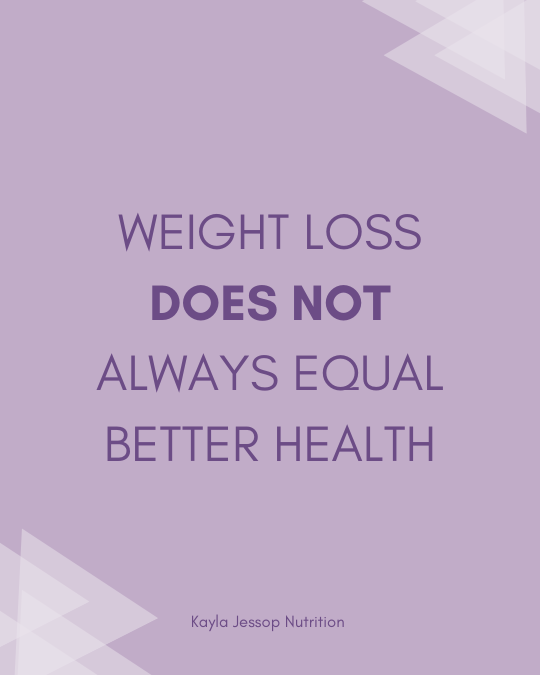Myth: Weight Loss Is Always a Safe Goal
We often hear that losing weight is always good for health—that slimmer = healthier, no questions asked. From social media to medical advice, weight loss is treated like a universal remedy. But the research shows that chasing weight loss without nuance can lead to serious physical and mental risks, especially when it’s unsustainable, rapid, or driven by external pressure rather than personal health.
Myth vs. Reality
Recent research, including The Impact of Weight Cycling on Health and Obesity (Wang et al., 2024), shows that repeatedly losing weight and then gaining it back (weight cycling or “yo-yo dieting”) is associated with worsened metabolic health, increased fat storage, and elevated risk of disease compared to more stable weight (Wang et al., 2024). Studies in animals have demonstrated that weight cycling worsens glucose intolerance and causes inflammation in adipose tissue even after weight is regained (Bernecker et al., 2025). There are also psychological risks: weight loss efforts, especially when driven by stigma, can increase anxiety, depression, disordered eating behaviors, and distress (Li et al., 2024). Large or rapid weight loss, might lead to nutrient deficiencies, loss of lean body mass, or other health harms rather than benefit (StatPearls, 2024).
What Actually Matters
Safe, meaningful health goals often look different than “just lose weight.” What tends to matter more than the number on the scale is improving diet quality, finding meaningful movement, ensuring adequate rest and stress management, and reducing weight stigma. These things often provide long-term health benefits even without major weight loss. When weight loss is considered, it should be under medical or dietetic guidance, with realistic timelines, focus on maintaining muscle and nutrient status, and robust support for maintaining changes. Also, for many, goals like energy levels, mobility, strength, or mental wellbeing may be safer, more motivating, and more meaningful than aiming purely for weight loss.
So, when it comes to weight loss - treating it as always safe or the best goal sets up people for harm, disappointment, or worse outcomes.
References
Bernecker, M., et al. (2025). Weight cycling exacerbates glucose intolerance and hepatic lipid accumulation in mice, indicating worsened metabolic effects by yo-yo dieting. Journal of Translational Medicine. https://doi.org/10.1186/s12967-024-06039-0
Li, W., et al. (2024). The relationship between psychological distress and weight loss levels: mediating roles of eating behavior and weight cycling. BMC Public Health, 24(1). https://doi.org/10.1186/s12889-024-18349-5
StatPearls. (2024). Risks associated with excessive weight loss. In StatPearls. StatPearls Publishing. https://www.ncbi.nlm.nih.gov/books/NBK603752/

